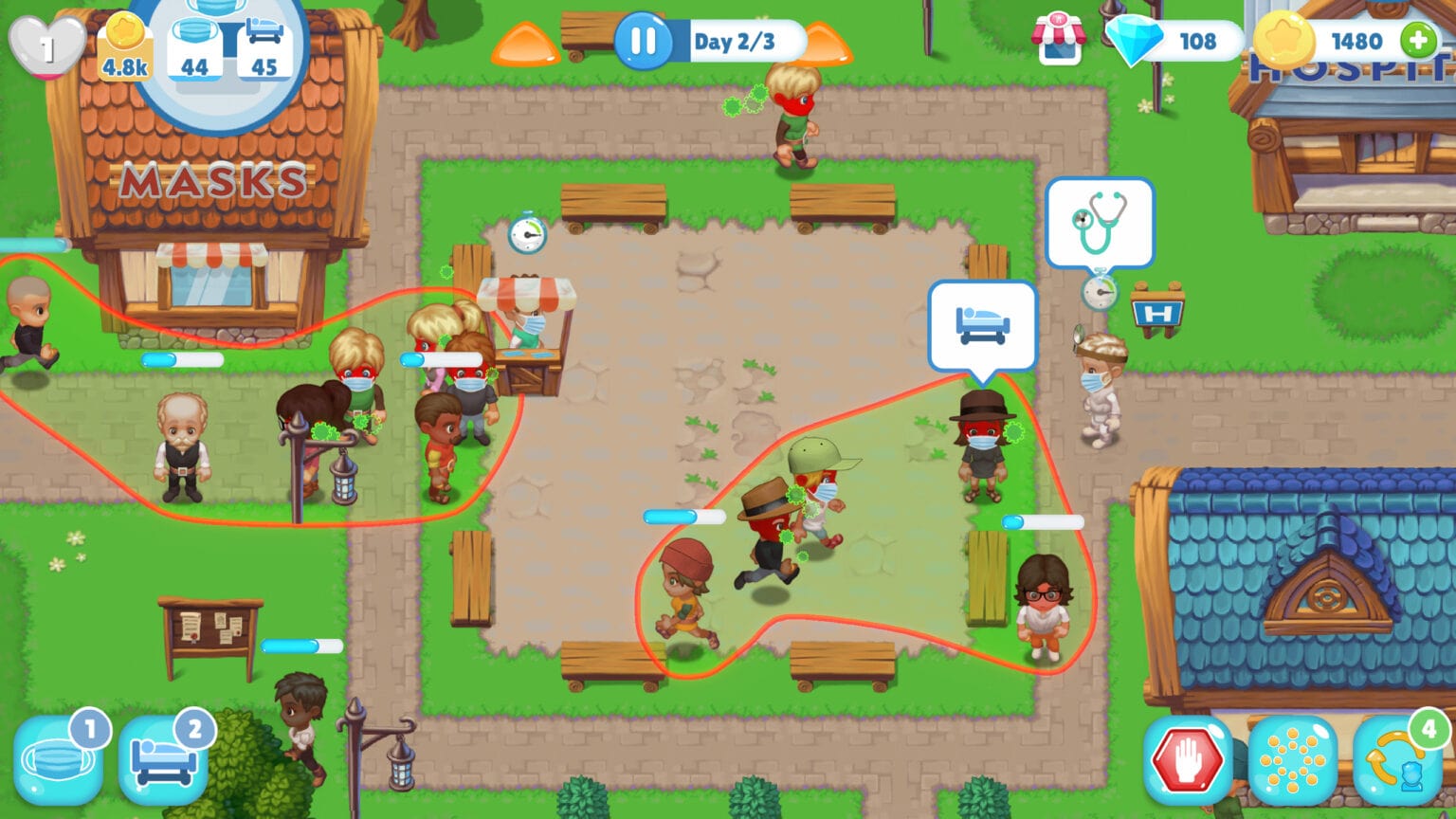When Florian Mueller submitted his latest game to the App Store, he didn’t think it would end with him filing a complaint against Apple with the European Union, the U.S. Department of Justice and other antitrust authorities around the world.
But that’s exactly what happened after Apple rejected his Corona Control Game due to its COVID-19 theme. Google, which barred Mueller’s game from the Google Play store, is also named in his complaints.
Germany-based Mueller, who has another career as a blogger on legal issues, is not happy with how Apple and Google handled his game submission.
“When [Apple and Google] rejected the game at the beta-testing stage, I was indeed surprised that they took issue with it in such a fundamental way they wouldn’t even let us distribute it to testers,” Mueller, 51, told Cult of Mac.
It comes as little surprise that people would develop coronavirus-themed apps and games. But Apple’s handling of such topical games lends credence to complaints about the company’s iron grip on the App Store — as well as perceived inconsistencies in its application of its own rules.
Apple told Cult of Mac that, since the start of the pandemic, the company has been careful to only feature coronavirus-themed apps from recognized entities such as government organizations, health-focused nongovernmental organizations, companies deeply credentialed in health issues, and medical or educational institutions.
Google did not immediately respond to Cult of Mac’s request for comment on its handling of Mueller’s game.
Theme Park, the coronavirus version
When COVID-19 burst onto the scene in a big way, games like Plague Inc. surged up the App Store rankings. Similarly, movies like 2011’s Contagion shot back onto the iTunes charts. People, perhaps searching for a way to control their fears about coronavirus, actively sought out ripped-from-the-headlines entertainment.
In Mueller’s game, players must react to the COVID-19 pandemic by distributing masks, enforcing social distancing, quarantining infected persons, and imposing lockdowns. It looks a bit like Theme Park, the classic theme park management sim, only with a more topical (and infectious) spin.
“When we started to develop this game, we were aware of … Plague Inc. having been on both app stores for many years,” Mueller said. “The main game of Plague Inc. has an objective that amounts to bioterrorism: Infect the world. So our conclusion was that if a destructive virus strategy game is allowed, there wouldn’t be any problem with a game that demonstrates the problem of viral contagion and is designed to promote disease-control measures.”
Corona Control morphs to Viral Days
Apple and Google clearly thought differently. Last year, Apple established a ban on games that used coronavirus as a source of entertainment.
“Entertainment or game apps with COVID-19 as their theme will not be allowed,” Apple said in March 2020. Games more broadly about pandemics — such as Plague Inc. — stayed in the U.S. App Store. (However, that game was banned in China by demand of the government.)
Apple and Google subsequently accepted Mueller’s app, but only after he stripped out the coronavirus topic. He renamed it Viral Days, and now you can find it on both app stores. He said that it’s still, essentially, the same game — but the forced rebranding fundamentally changes it.
“They [essentially] forced us to reshoot the Titanic film without the Titanic ship,” he said. “Just imagine watching the Titanic movie if it’s named Sinking Ship, and what you see in it is some unidentifiable, unnamed vessel.”
Apple’s control of the App Store
But as private companies, should Google and Apple not be able to enforce rules as they see fit?
“The App Store is the only way to distribute apps to a billion iOS users,” Mueller said. “The Google Play store accounts for 90% of all app downloads made with billions of Android devices, except China, which has its local app stores. It would be a different situation if Apple and Google allowed alternative app stores, which Apple rules out entirely and Google limits to device makers’ stores, which are relatively small.”
Mueller said he is not the only person to face this problem with Apple’s coronavirus policy.
“It’s not only about my game but about COVID-related apps in general,” he said. “Just a few days ago, the developers of an app named Coronavirus Reporter brought a lawsuit against Apple in U.S. federal court. Their complaint says they know about several other cases of COVID-related apps that were rejected not because the apps themselves were problematic, but because Apple and Google only allow governmental entities and healthcare providers to publish such apps.”
More broadly, Mueller called the companies’ clampdown on COVID-19 apps and games a misguided mistake with negative consequences for humanity.
“It’s not just that tens of millions of developers can’t offer products just because of a blanket rule,” he said. “The worst part is that society at large is deprived of the useful contributions such apps could make.”
Mueller said he hopes his complaints — which land atop a growing pile of objections to the power Apple and Google wield — will bring change. The government agencies he filed the complaints with can take action if they want. Whether that will happen remains to be seen.
In the meantime, you can download Viral Days for free.


